50 years of Annie Nightingale on Radio 1
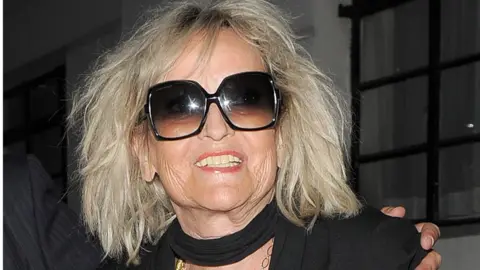 Getty Images
Getty Images"I've never forgotten that feeling of being an adolescent, thinking nobody understands me. It can be lonely, but radio's your companion."
It's been 50 years since Annie Nightingale spun her first disc as a Radio 1 presenter - the first ever female DJ on the station to do so.
With radio and music always playing when she was growing up, Annie feels she was "maybe destined to end up at Radio 1".
"My first word that I tried to say was music, but I couldn't quite say it."
The 80-year-old has been speaking to fellow Radio 1 DJ Nick Grimshaw about her five decades on the airwaves.
Breaking barriers
It might now be her 50th year, but the journey into Radio 1 wasn't exactly smooth.
"The BBC was very formal and establishment. It wasn't DJs but serious guys in dinner jackets."
She was rejected in her first try at joining at Radio 1.
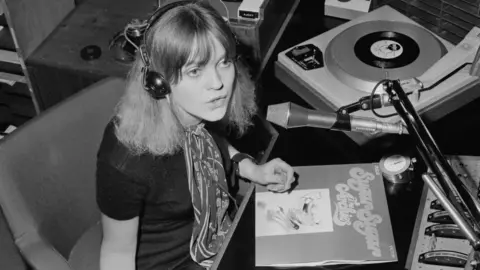 Getty Images
Getty ImagesSpeaking on Radio 4's Desert Island Discs in July, she said she "hadn't really experienced sexism until then".
"They came out with this wonderful line, 'this job is a husband substitute', which I thought was an extraordinary thing to say."
"I thought it set up a lot of assumptions that all women pop fans were housewives at home doing the ironing."
But a new boss meant she was able to break through and become the first female presenter at Radio 1 in 1970.
'The Beatles changed everything'
They are regarded by many as the biggest band the world has ever seen. And for Annie, they hold a special place in her heart beyond the music.
"They were really involved with me getting involved with Radio 1. I interviewed them and I'd give (out) a tape of it.
"And it was their people who told Radio 1 I was very keen and introduced me to them."
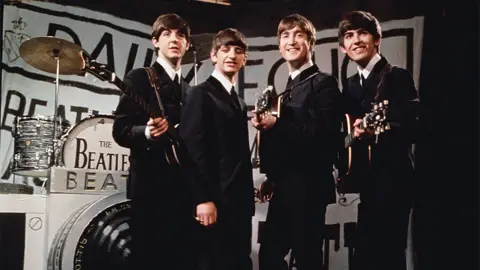 Getty Images
Getty ImagesShe credits the Beatles for creating "a revolution".
"Suddenly you had young people saying I want to be a photographer, model or musician - and they did."
They opened the doors for "young people to do what they wanted to, a whole generation", including her.
Seeking new music
As a DJ, her musical taste has always been diverse, she says.
"I think you're always looking for something new. It's my curiosity because I'm a freak.
"You can't pretend. I wouldn't spend most of my life seeking out new people, unless I really believed in it."
She's inspired by the late Radio 1 DJ John Peel, who would always look for new music.
"He took so many chances and so many risks to bring people what they believed in.
"It's so important to keep that flag flying and keep that going."
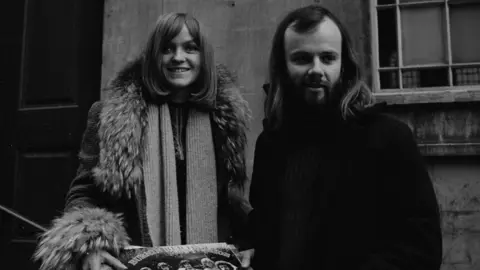 Getty Images
Getty ImagesOf the modern stars, Annie is a big fan of 18-year-old Billie Eilish, being told about her by a 13-year-old.
"She immediately connected with people of that age. This is the phenomenal, extraordinary thing about her."
"And her music is so adult you can hardly believe she's 18."
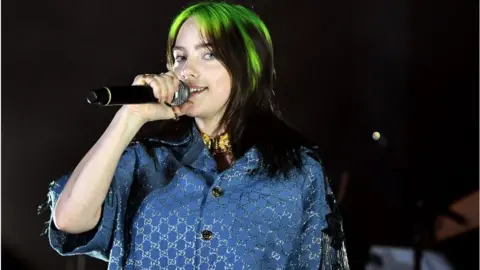 Getty Images
Getty ImagesAnnie sees similarities in the rise of grime today, with the rise of punk in the 1970s.
"Punk had to happen because people needed to say what they felt about what was happening. It was a depressing time with unemployment."
"It shocked people for sure, but it was saying things young people felt and could identify with."
And she feels grime is about young people expressing themselves, which is "what we look for in lasting music".
"Grime is about lyrics, words and rapping. It's a channel young people can use to express their feelings," she adds.
Meeting the Queen
This year Annie was awarded a CBE for services to radio broadcasting.
But it's not her first brush with royalty - she received an MBE in 2002.
"If you meet the Queen, you're told you must not speak first. I thought it was like school prize giving so I thought I'd make it a bit easier for her.
"When she came to me, I said your grandson (Prince William) seems pretty keen on being a DJ. The only word she said was 'probably'."
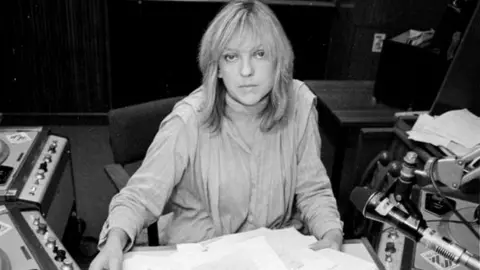 Getty Images
Getty ImagesShe's been asked by Buckingham Palace to return her MBE now that she's been upgraded to a CBE.
"But the MBE is in such a safe place I can't remember where it is!"
And despite being a Radio 1 presenter so experienced at communicating with millions, she admits:
"I don't know what I'm going to say to Buckingham Palace."


